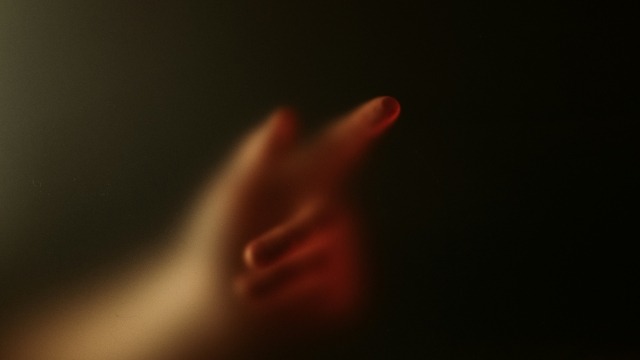Opinion: Moderate Libs blame voters for their own failings

By Mark Kenny
A version of this article was originally published by The Canberra Times.
The most surprising thing about the anger flowing from Liberal moderates after the last election was that there really wasn't any.
Vestigial "small-L" Liberals meekly agreed to double down on hardening up, drafting Peter Dutton to replace Scott Morrison in the full expectation of being dragged further rightward.
Portentously, Dutton dispensed with the customary post-defeat nod to the collective good sense of Australian voters.
Neither would there be an acknowledgement that the party's loyal base was rightly browned off by insulting attacks on renewables, flippant culture wars, defiant sexism, and tin-eared refusal to create an anti-corruption watchdog.
Hell no. The new leader preferred to talk up the virtuous suburbs in a cartoon contrast with the "woke" sensibilities of propertied metropolitan elites and craven corporates.
He could not have been clearer had he decreed Australia's business party was, henceforth, "the party of the worker". Which, by the way, he would get to before long.
It was a characteristically bullish reaction to the seismic shift of 2022 which saw the arrival en masse of the community or "teal" independents in "safe" Liberal seats.
Self-reflection was apparently too confronting, or just inconvenient. Since Tony Abbott, Liberals had fashioned themselves as metropolitan "Nationals" refusing point-blank to update their social thinking in line with the community.
Little wonder then that their heartland voters went looking for actual liberals. Building on the successful model pioneered by Zali Steggall against Tony Abbott in 2019, six articulate professional women wrested seats off the Liberals in 2022.
Misinterpreting the policy wellsprings of this calamitous base erosion required some serious ideological blinkers.
To be fair, Simon Birmingham, who had emerged as the leading post-Turnbull moderate, did speak out the morning after the defeat, acknowledging "obviously we've lost and we've been delivered a comprehensive message from parts of the community". Yet it was a message that left Dutton unmoved.
Two-and-a-half compliant years later, Birmingham, the man who could've been just months from becoming foreign minister, has quit. Presumably, barracking for a cause you only half believe was a morale-sapping endeavour.
His bombshell resignation, announced on the last sitting day of the year, leaves a gaping hole in the Dutton frontbench. It has deprived the "moderate" faction of its most persuasive force.
Who is left now to fly the flag of Liberal progressivism?
The pickings are decidedly slim among surviving Liberal centrists, who, despite losing moderate(ish) colleagues like Josh Frydenberg, Trent Zimmerman, Jason Falinski, and Dave Sharma in the party's cherished heartlands, held their tongues in 2022 as they jockeyed for promotion on Dutton's new frontbench.
None would seriously critique the Queenslander's arid vision of an Australia reconceptualised, not as a new Jerusalem, but as a kind of unending Brisbanic sprawl.
An Australia in which a deracinated industrial class becomes shallowly defined by what it consumes rather than what it makes.
A materialist Australia whose inchoate resentments could be parcelled up to include migrants, corporate piety, and a simmering grievance over what Scott Morrison coined in 2021 as the policy agenda beloved in "cafes, dinner parties and wine bars" of the inner cities.
Quelle surprise.
Dutton's pitch is aimed at the "real" Australia - the treeless tundra of McMansions mortgaged to the hilt and jammed into their blocks like the super-sized utes in the streets outside.
Save for the ubiquitous Stars 'n Stripes, it could be America, the place from where this political recalibration takes its cues.
Rebranding the Liberal Party as the blue-collar party may feel less dramatic than the role-reversal achieved by Trumpism in the United States, but the first steps have brought nary a peep from moderates.
In the US, the GOP has completely surrendered to right-wing populism and demagoguery. Traditional mainstream Republicans have been hounded to the margins, regarded as apostates to be publicly vilified and personally threatened.
If the Liberals are a fundamentally different kind of party to the Republicans, or even indeed to the Nationals here, it is not outwardly obvious.
Rather, the evidence points in the other direction. Whatever weak influence the moderates have exerted in the Liberal Party to date, is set to become undetectable in a hardening political vogue which rewards obedience over obligation, discipline over dissent.
The apparent successor to the unflappable Birmingham is fellow frontbencher, Paul Fletcher.
Like many nominal "moderates", he is a progressive by designation rather than through any particular action visible from the outside.
And like Dutton and Morrison before him, Fletcher's starting point for the Liberal rout of 2022 is to blame the voters for being so feckless as to fall for "trickery" and a "green-left con job".
Under threat in his Sydney electorate of Bradfield from second-time "teal" candidate Nicolette Boele, Fletcher's instinct is not to ask why middle-way Liberal voters are unhappy with his party, but to attack "teals" as "very much in the tradition of front groups established by left-wing political operatives which are designed to lure votes away from the Liberal Party by tricking voters about their bona fides".
Not since Hillary Clinton's notorious "basket of deplorables" sledge in 2016 has a senior front-running candidate so directly impugned the intelligence of his constituents.
It says everything about the moderates that their absence of anger towards social conservatives in 2022, has finally erupted at their own voters and the "liberal" independents who show them up.
Mark Kenny is the Director of the ANU Australian Studies Institute and host of the Democracy Sausage podcast.








